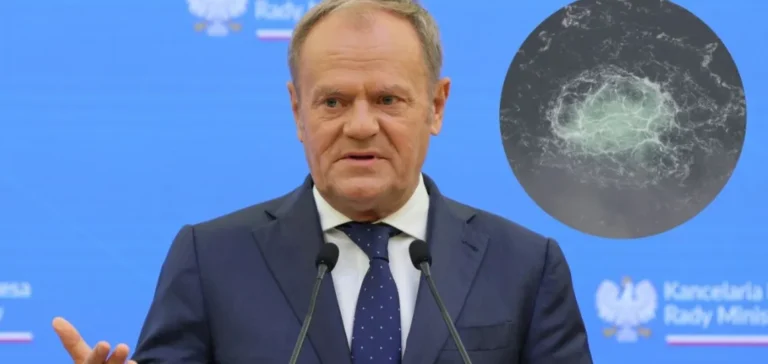Polish Prime Minister Donald Tusk stated that it would not be in the national interest to hand over to Germany a Ukrainian national wanted for his alleged role in the explosions that hit the Nord Stream gas pipelines. The man, identified as Volodymyr Z., was arrested in late September near Warsaw under a European arrest warrant issued by Berlin.
A decision left to the Polish judiciary
Donald Tusk said the final decision would rest with the Polish court, while reiterating Warsaw’s long-standing opposition to the pipelines linking Russia to Germany. According to him, the Nord Stream 1 and Nord Stream 2 projects deepened Europe’s energy dependence on Moscow. “The problem of Europe, Ukraine, Lithuania and Poland is not that Nord Stream 2 was destroyed, but that it was built,” the Polish leader said.
Investigation into sabotage and regional tensions
German authorities have not yet responded to Warsaw’s comments. A Polish court extended Volodymyr Z.’s provisional detention for forty days while examining the extradition request submitted by Berlin. The case is part of the investigation into the September 2022 explosions near Denmark’s Bornholm Island, which severely damaged the underwater pipelines connecting Russia to Europe.
German federal prosecutors accuse the suspect of taking part in an operation by a group that allegedly rented a sailing yacht to place explosives on the pipelines. He faces charges of conspiracy to commit an explosives attack and anti-constitutional sabotage. Another Ukrainian national arrested in Italy in August is also suspected of coordinating the attacks and is contesting his extradition.
A case linking energy and national interests
The Nord Stream explosions marked a turning point in the Ukraine conflict and triggered a major energy crisis in Europe. Neither Russia, nor Ukraine, nor Western countries have claimed responsibility for the sabotage, fuelling speculation and diplomatic tension. For Poland, the case highlights the fragility of the balance between European alliances, energy interests and national judicial decisions, at a time when gas dependency remains a major strategic issue.






















